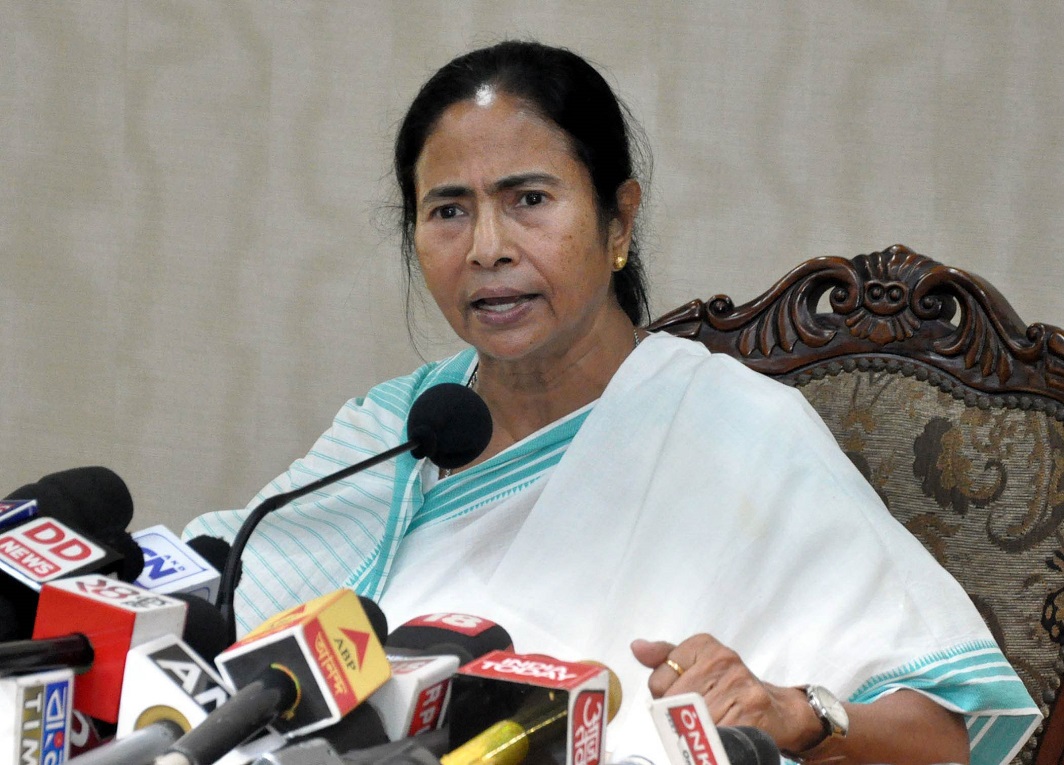By Sujit Bhar
The news item was simple: A judge of the Calcutta High Court has recused himself from hearing a petition placed before the court by Mamata Banerjee, the Trinamool Congress (TMC) chief and the Chief Minister of West Bengal. The petition challenged the election of TMC turncoat and now BJP leader Subhendu Adhikari from the Nandigram assembly seat at the recent polls that TMC massively won. The vanquished in that constituency was Mamata Banerjee.
Considering the recent recusals by two Supreme Court judges, Justices Indira Banerjee and Aniruddha Bose from cases related to Bengal, this would not have raised eyebrows. However, Justice Kausik Chanda’s recusal has, strangely, come with the imposition of a cost of Rs 5 lakh, and has also come after protests from several TMC leaders who have pointed out that the judge, in the past, had been actively and closely associated with the Bharatiya Janata Party, the party whose candidate’s election was being challenged in the petition. MPs Derek O’Brien and Mohua Moitra have tweeted pictures showing Chanda, then not a judge, but a lawyer associated with the BJP, attending party meetings alongside Dilip Ghosh, who is now the party’s president in West Bengal.
The critical case was assigned to Justice Chanda by the high court’s master of the roster, Acting Chief Justice Rajesh Bindal. And while the authenticity of the pictures has not been questioned at all, the cost was imposed for what has been termed the “calculated manner in which the application for recusal was moved.” The high court was eminently within its rights to refuse the appeal by the TMC to change the judge. A judge, especially of a high court, is almost by definition assumed to be impartial. Accusing bias even before the hearing of a case could have been a matter of contempt. However the TMC propaganda was effective and a public outcry ensued. It is also true that the judge had served as an Additional Solicitor General for the BJP government before he was elevated to the bench.
Justice Chanda graduated in law from Calcutta University in 1997, before enrolling as an advocate. On May 16, 2014, the BJP won the general elections in a landslide and assumed power at the Centre. Twenty five days after that he was promoted to Senior Advocate. Less than a year later he was appointed Additional Solicitor General of India. He demitted that office in September, 2019 and was elevated to the bench as an Additional Judge of the Calcutta High Court on October 1, 2019.
Here is where an added dimension to the issue is evident. During the time of the elevation of the judge to the bench as an Additional Judge of the high court, Mamata had objected, citing the same reasons that she has now. That objection was swept aside. Logically, the elevation of a lawyer to judge is within the realm of the court. No political party has the right to interfere, following the division of powers principle. Hence, Mamata’s objection could not hold water.
Now the issue, it seems, has come full circle. This time, Mamata has won the day. One of her other contentions was that Justice Chanda’s elevation was opposed by Mamata. That could have left residual hard feelings.
Now, Justice Chanda, in his defence, has said: “Like any individual citizen, a judge also exercises his voting rights and has political inclinations. The past association of a judge with a political party cannot be an apprehension of bias. Accepting such a contention will lead to bench hunting.”
The issue was muddied further, when Mamata wrote to Acting Chief Justice Bindal seeking reassignment of her case to some other judge. That letter, to the administrative side, has had no reply. Mamata then filed an application on the judicial side, seeking Justice Chanda’s recusal.
As the case came up for hearing on June 24, Justice Chanda conceded his close connection with the BJP. There was no turning back from that. Justice Chanda also said that the matter should have been raised on the judicial side first.
The general principle followed by the master of the roster of a court is to assign political cases to judges who are adept at those, financial cases to judges who had been adept at that, and constitutional and criminal cases to judges who have been experienced in those fields. When a judge has been elevated from the bar, his client profile is a good indication of his or her area of expertise. As an ASG of the BJP, Justice Chanda would have been adept at political cases, but would also have been good at handling BJP briefs that pulled the case towards the party. This would have presented a dilemma.
Possibly the easiest way out would have been to assign a judge completely unrelated to the current political scenario.
A party in this case is the Election Commission of India (the state election commission). The allegation against the commission is also of bias, and not without reason. The Nandigram election, high-voltage as it was, was replete with strange happenings. Of them, the strangest was the initial declaration by the state commission that Mamata had won. Within hours, this “announcement” was reversed. The TMC claims foul play, not only by the BJP, but also on the part of the EC.
Choosing a judge to pass a verdict on such a contentious case is not easy. Trinamool leaders also do not understand the initial refusal to recuse by Justice Chanda. The new judge for the appeal has yet to be decided, but as of now the will of the people seems to have prevailed, even in court.


